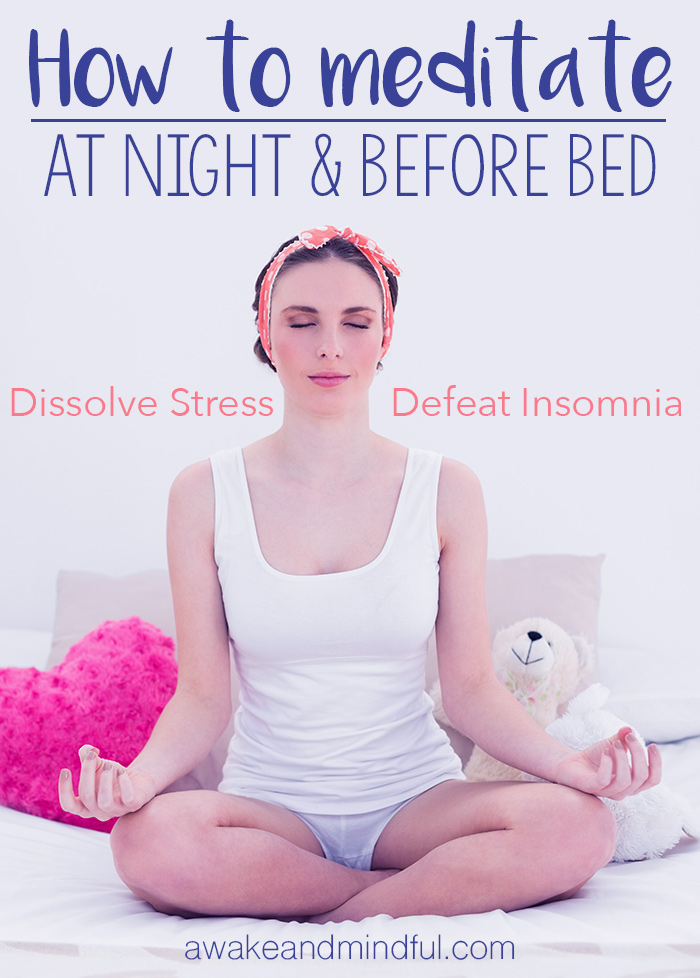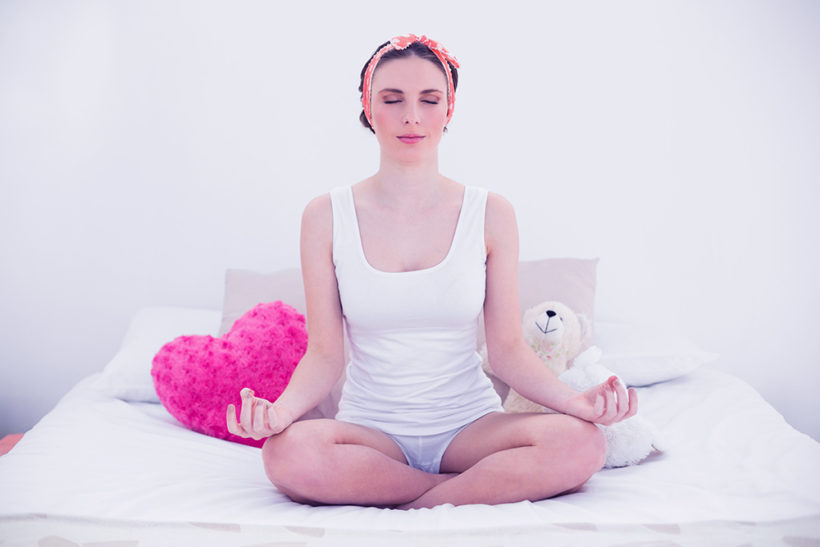How to Meditate at Night & Before Bed
There’s nothing that feels better at the end of a hectic, frantic day than sliding into a comfy bed and leaving all the stress behind. Sometimes it isn’t that simple. Your body is exhausted but your mind is still running, fretting over unfinished to-do lists and meetings on the schedule the next day. It’s time to rest, but stress is getting in your way. If you have general problems with sleep and insomnia or just trouble during stressful times, then meditating in the evening or before bed can be very beneficial. Meditation allows you to silence your mind and leave behind your worries so you can relax and drift off to sleep. It’s easy to incorporate meditation into your nightly routine. Once you do, you’ll probably wonder how you lived without it.
Build Meditation into Your Nightly Routine
Even if you’re not aware of it, you probably have a nightly routine. You brush your teeth, hop in the bath, put on your PJs. Meditation is easy to build into whatever your pre-bed ritual is. Plus, this is the best way to turn meditation into a habit.
It’s up to you to select the point in your routine that meditation will work best, but I recommend choosing a point as close to going asleep as possible. You may even find that you meditate yourself directly to sleep. Brush your teeth, do your nightly skincare routine, and change into your sleeping clothes.
You can meditate lying in bed, sitting on your bed, or in your regular meditation spot using a cushion, bench, or meditation chair. Make sure to use proper posture with your spine straight. If you’ll be lying in bed, lay flat on your back in a comfortable position. I recommend getting under the covers so you can easily drift off to sleep.
Create a Relaxing Atmosphere
Since we’re winding down before bed, we want to leave all the stresses of the day behind. Banish your smartphone from the room, put it in a drawer, or at least put it on “Do Not Disturb.”
Turn off the lights if you plan to go straight to sleep or dim the lights. A bedside lamp is a good alternative.
Light a candle (only if you’re not going to straight to bed) or use some essential oils to help calm you. Choose relaxing scents like lavender and chamomile. If you’re going straight to bed, an aromatherapy spray spritzed over your pillow and sheets is a lovely option.
If you enjoy sleeping with a sound machine, this is a good time turn on some relaxing sounds or a guided meditation.
Meditate
I have an anxious mind, so winding down at night is a big struggle for me. Guided meditations are really great to help you focus and turn off all the thoughts tumbling around in your brain. If you’re particularly tired or don’t have issues with insomnia, you may be able to lead yourself through a simple mindfulness meditation.
Sit or lay down. Close your eyes and focus on your breath. Count each inhale and exhale up to ten, focusing on the sensation of the breath in your body.
Starting with your toes, focus on each part of your body: feet, calves, knees, etc. Notice the sensations in each body part, the weight of it against the floor or bed. Then feel that body part relax. Keep moving up your body.
If you find your attention wanders or thoughts creep into your mind, gently bring your attention back to your breath.
Once you’ve completed your body scan, return your attention to your breath. If it’s helpful, count your inhales and exhales. If you’re in bed, continue to count your breaths until you drift off to sleep. If you’re sitting for meditation, bring your awareness back to the room and the sounds around you. Feel the weight of your body on your chair or on the floor. When you’re ready, blink your eyes open.
Share on Social Media

Looking for more resources on starting your own meditation habit? Learn how to create a daily meditation practice and how to meditate in the morning. Check out these meditation videos and books for beginners.
